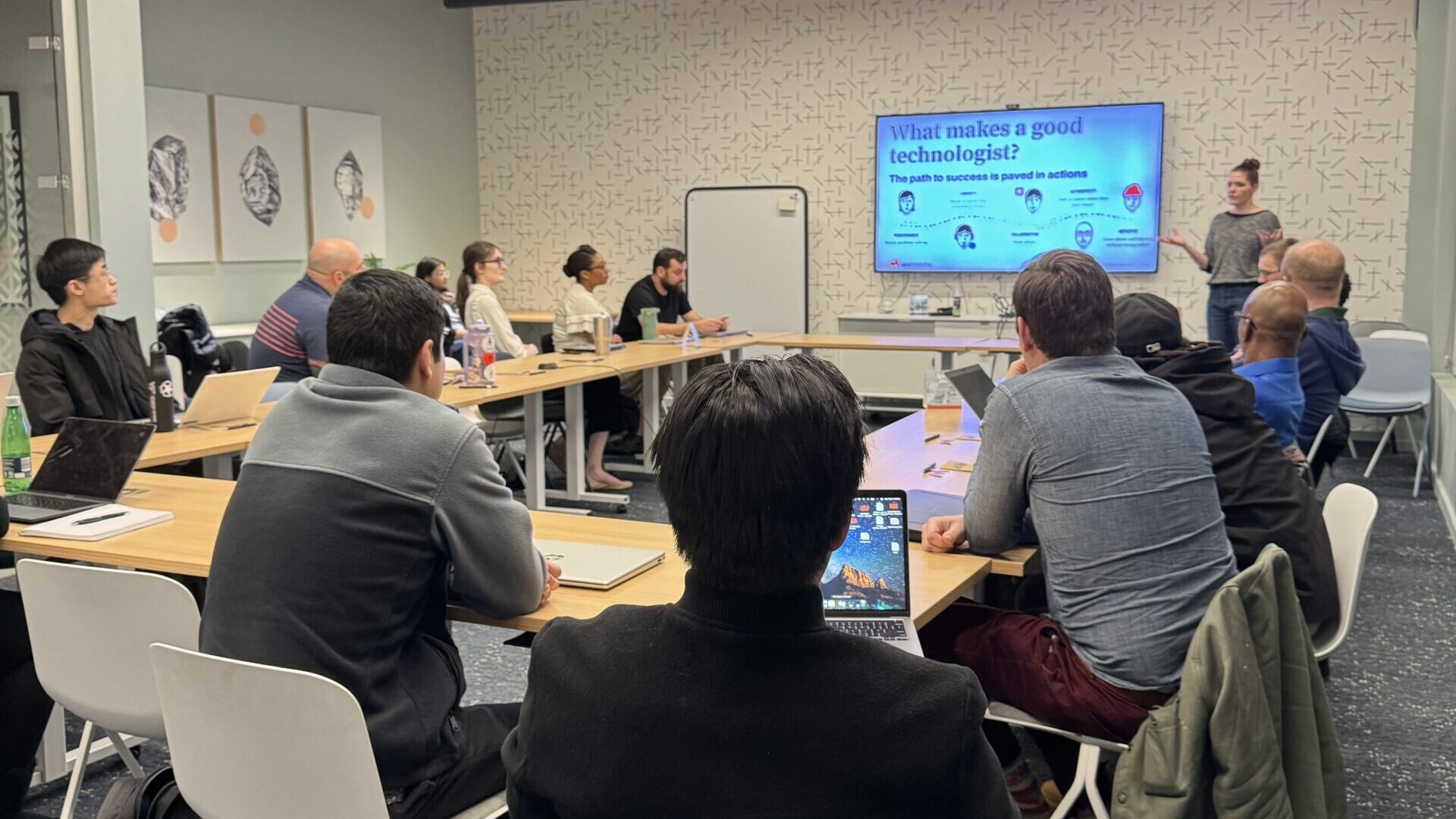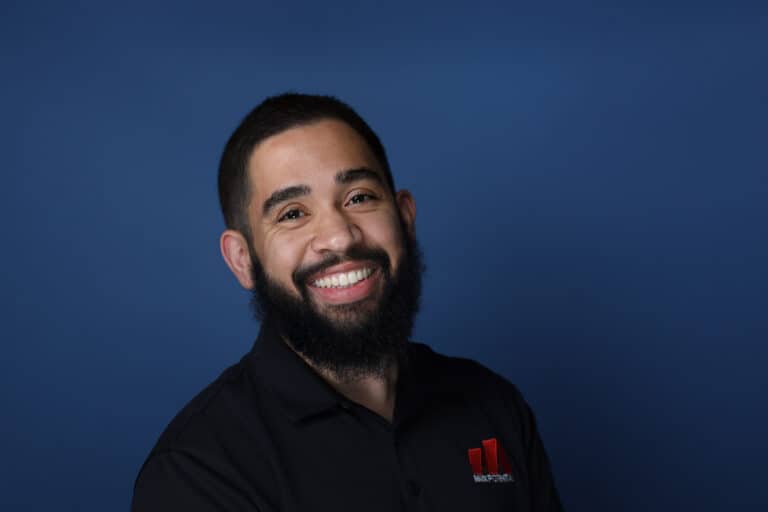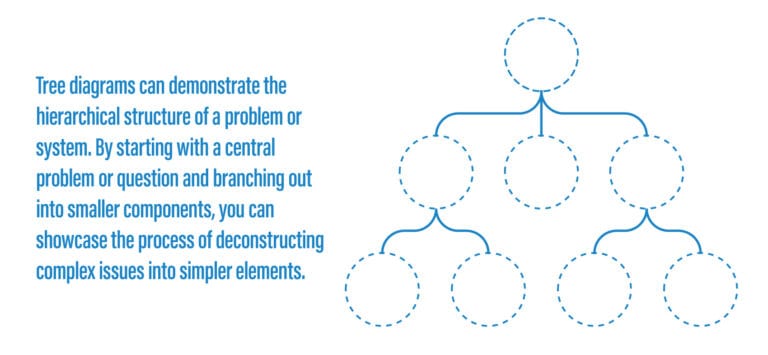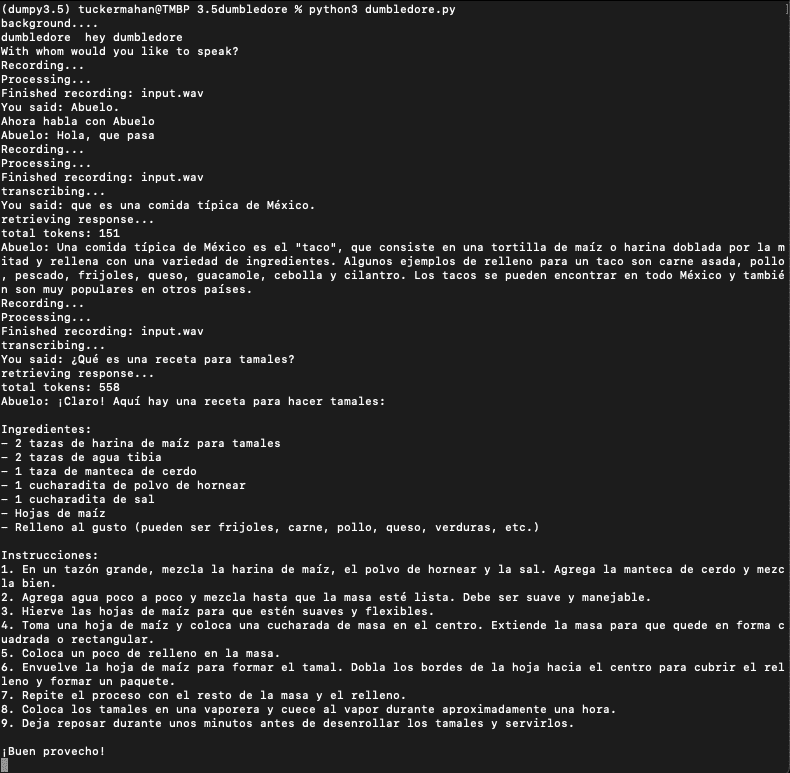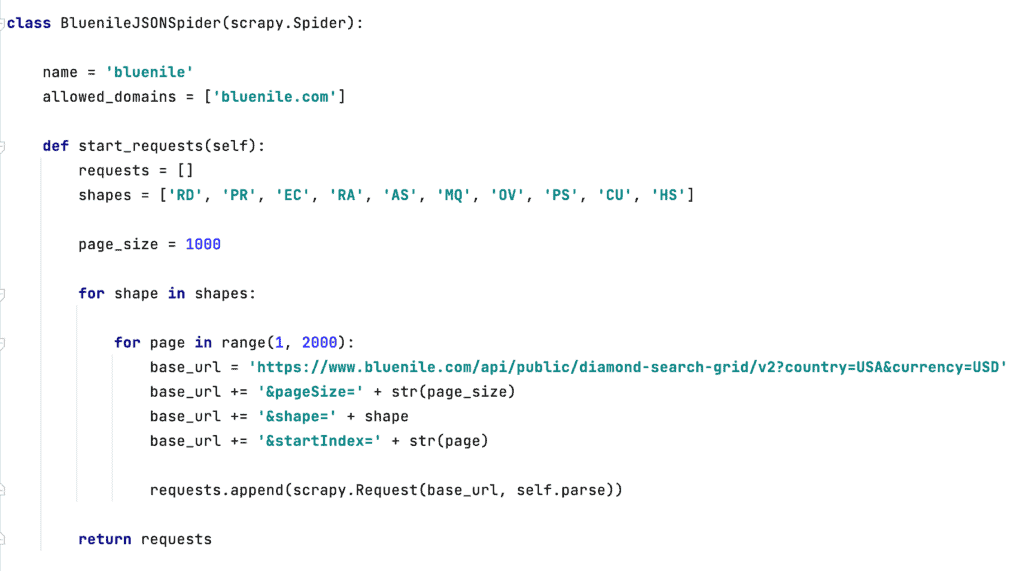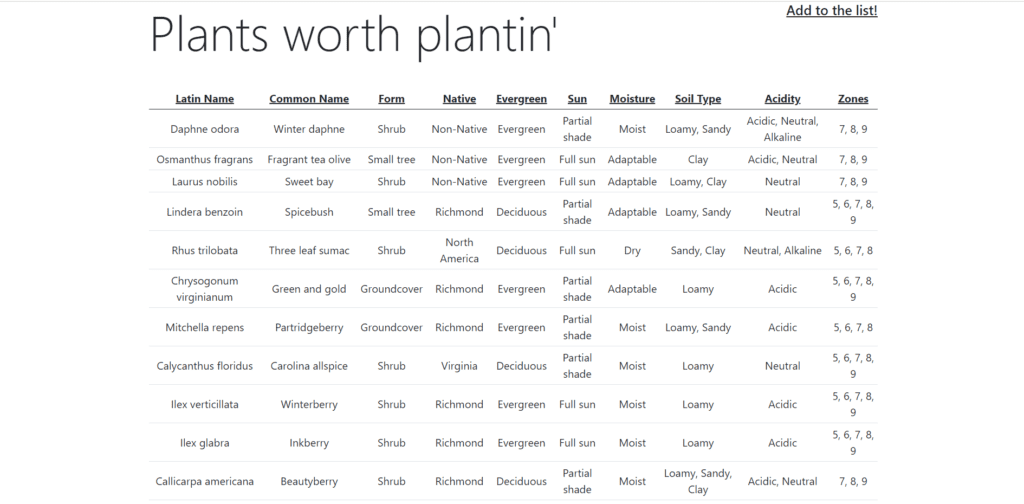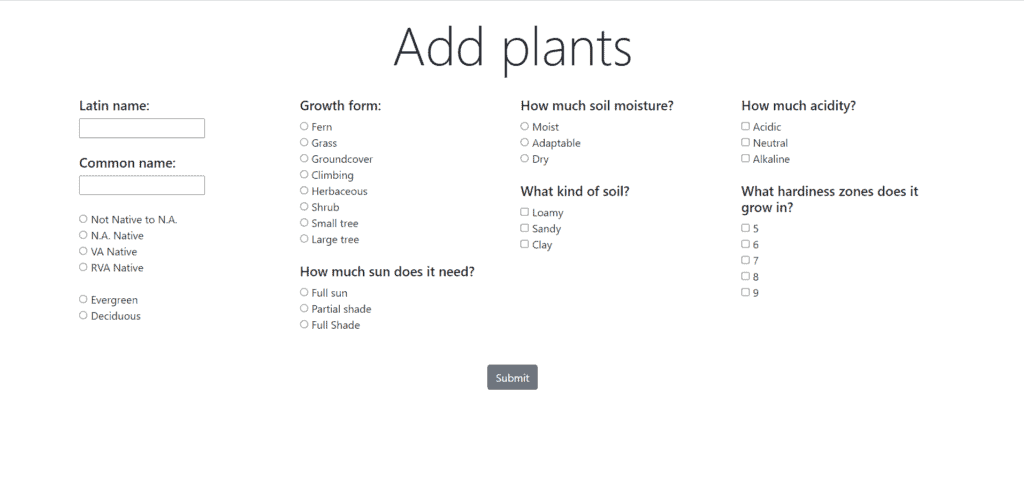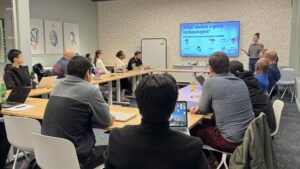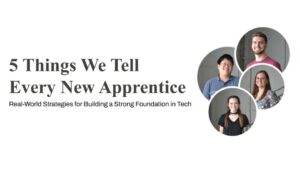From Hobby to Innovation: Exploring AI Passion Projects
Building AI Tech Skills with Projects
By MAXX Potential
- Posted:
- Apprenticeship

“I think we’re all eager to see how AI will shape technology in the coming years,” says Peter Ahn, MAXX Apprentice. “It’s exciting because it has so many use cases we’ve yet to discover.”
Back in March when OpenAI released the API for the GPT-3.5-Turbo, technologists across the world raced to explore the capabilities of this new technology, including our very own Talent Director Tucker Mahan in “The First 48 Hours of OpenAI’s API.” Artificial Intelligence (AI) and automation have been widely used in a number of capacities for years, but this was the smartest large language model (LLM) we had yet to see.
It’s been six months since the GPT-3.5-Turbo released, and AI has continued to advance and be explored by curious technologists. We wanted to take a moment to chat with AI-interested MAXX Apprentices, Peter Ahn and James Stanley.
How Curiosity Inspires Innovation and Learning
“I found myself wanting curated outlines for my coding projects to keep track of my progress. Too often, I write code without a clear plan in mind.” Peter Ahn shares. Faced with this problem, he wondered if he could create something that would track this for him.
Peter’s interest in tech and interactive chatbots started at a young age, and he recalls, “When I was little, my sisters helped me create an AIM account so I could try chatting with ‘smarterchild’. It was an early chatbot that could engage in somewhat intelligent conversations… And it was mind blowing. ChatGPT definitely renewed that feeling of amazement in me.”
As Peter explored the OpenAI API capabilities, he recognized that playing with the technology could be fun and informative. He wanted to see where his exploration would lead.
“After learning about the OpenAI API, I saw an opportunity to build a reusable web template with the API methods, which are more customizable compared to ChatGPT.” Peter points out. “For example, I can adjust the temperature, which affects the “randomness” in GPT’s responses. A higher temperature encourages unique and imaginative responses, while a lower temperature promotes greater consistency.”
Peter developed a basic tech stack with options where he can select coding languages he wants to use when he’s gearing up to brainstorm project ideas.
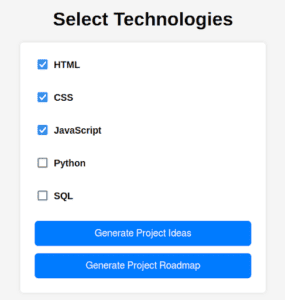
With the help of ChatGPT, a few project ideas are generated.

Once an idea is selected, an outline for the project populates in a rough format of the Software Development Lifecycle. This can help direct the next steps of your project development.

“The outlines aren’t super useful or aesthetically pleasing yet, but thankfully that’s probably my fault and not GPT’s!” Peter shares.
AI Integration Helps Clone Your Superhero
“After finding out that I could integrate ChatGPT into python I was excited to see what else I could do with it.” James Stanley, MAXX Apprentice, shares.
As he dove into the possibilities, he scoped out what other people were doing. YouTube offered a number of tutorials demonstrating how to create your own bot who sounded like Jarvis from Iron Man, Elon Musk, Albert Einstein, and Eminem.
“Since I am also learning how to code, I am constantly practicing to get better at python and recently javascript,” says James. “I thought it would be cool to make a tutor with your choice of celebrities that would then help you with code or anything else you needed help with. Using ChatGPT and machine learning to build this.”
For James, this technology is exciting because it’s existed in Sci-fi novels and movies for years. Suddenly the premises of movies like Iron Man, The Terminator, and I Robot seem more realistic and, for some, scary.
“I can already see glimpses of self-driving cars, human looking robots that function properly, and an AI that can eventually think for itself.” James shares.
The possibilities seem endless in light of AI advancements and technologists’ discoveries. Seeing the rapid changes in automation, AI, and LLMs spurs innovation and more.
“When I started learning python I was already interested in machine learning, where data and algorithms can imitate the way humans learn by giving it a set of data to learn from.” James points out. “I am interested to see how far AI will go, will I ever see a terminator version of AI in my lifetime or Jarvis from Ironman.”
AI is Here to Stay
Artificial intelligence, automation, and language learning models are here to stay, and our world is in the process of being changed wholly by these advancements. Concerns and AI innovations occur simultaneously.
Some view AI as a new tool for productivity while others raise objections. It’s true that with great power comes great responsibility.
“I think their fears are valid but not for the same reasons that they may believe,” says James. “While I do believe that years later AI will take away some jobs I do believe that it will open many other types of job opportunities that could be more technical or something that we never would have thought of before.”
In light of the fear of being replaced by AI, Peter observes, “Innovation is great, but not at the expense of everyone else. We should stay informed on this topic since it could drastically change the way we live.”
One way to learn about AI is to dive into using it yourself.
“Try asking ChatGPT or Google Bard how they work!” Peter encourages. “You can learn a lot about their features and limitations. I wouldn’t say the information is completely up-to-date, but they’re great as stepping stones into deeper research.”
Interested in learning about how AI can cut business costs and boost company productivity? Reach out to MAXXpotential.com about your interest in optimizing your back office capabilities.
MORE POSTS
Director of Emerging Technologies Talks About AI Code Editors, Chat Interfaces, and Agentic AI
Building Tech Careers from the Ground Up
Alumni Success Story with Brad Chaffee, Insider Threat Analyst at Randstad Digital


